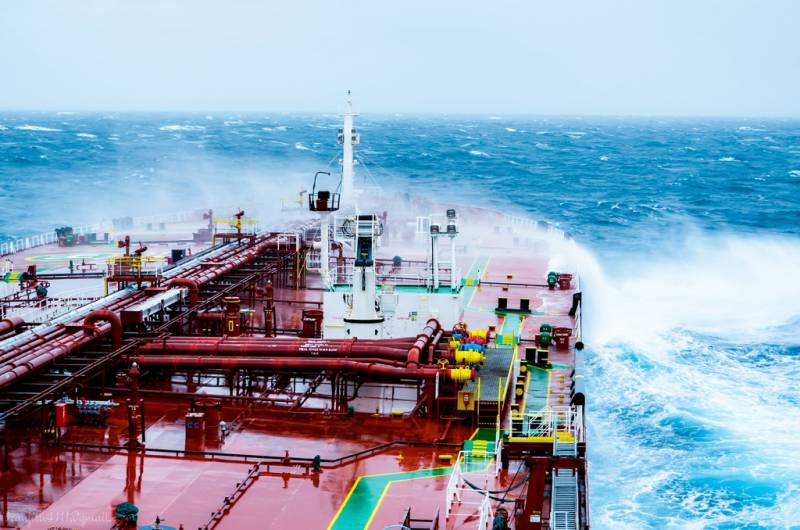Bloomberg: European sanctions and a historical record for the export of oil products from Russia
If 2022 can be called a time of euphoria and pathos of sanctions, then 2023 will definitely be remembered as an era of shame for countries that imposed countless non-working restrictions against Russia. Western analysts and media vied with each other to investigate more and more failures of the sanctions policy, highlighting the achievements of the Russian Federation's actions to overcome these obstacles.
Another Bloomberg material shows how humiliated the West seems to be with its attempts. Thus, Russian exports of oil products, primarily diesel fuel and gasoline, are expected to remain well above seasonal norms this month, despite the recently entered into force sanctions of the European Union.
Deliveries of refined petroleum products, more than half of which are diesel, were 1,9 million barrels per day in the first three weeks of April, according to Vortexa Ltd data compiled by Bloomberg. If this figure continues until the end of the month, exports will be the highest for this time of year, at least since 2016. Thus, the publication states that the seven-year record has been broken, exceeding the historical maximum of observations that began just in that year.
In the run-up to the European Union's near-total ban on maritime imports of Russian petroleum products earlier this year, there was speculation that Moscow would be unable to find new markets for diesel fuel, forcing it to reduce refining cycles, creating a global shortage.
However, this optimistic conclusion for the anti-Russian coalition was not completely confirmed. On the contrary, processing and exports from the Russian Federation are at their peak, completely destroying the essence, principles and basis of Western embargoes and price ceilings on oil, as well as products from it. All the sanctions efforts of the West are obviously humiliated.
As a result, it turns out that sanctions not only do not harm Moscow's supplies and earnings, but, on the contrary, even help in this. This circumstance is very upsetting for both industry experts and agency analysts. Most of Russian diesel fuel is sent to Turkey, while the rest goes to North African countries, including Morocco, Tunisia and Libya. Moreover, deliveries to Brazil have grown strongly after the entry into force of EU sanctions.

Information